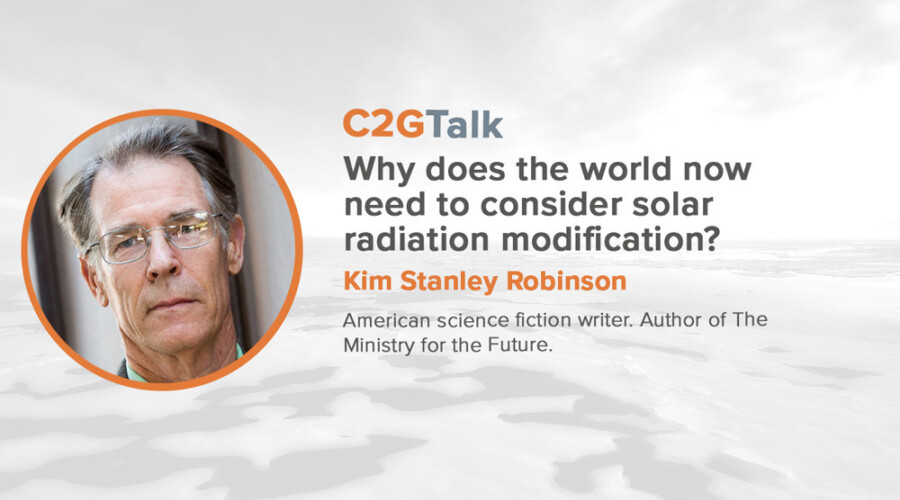A Climate of Injustice: Global Inequality, North-South Politics, and Climate Policy, J. Timmons Roberts and Bradley C. Parks (Cambridge, Mass.: MIT Press, 2006), 384 pp., $65 cloth, $26 paper.
Martin Bunzl (reviewer)
When people learn that I am an academic philosopher interested in climate change they often become effusive about the dire need for more talk about ethics in the discussions of global warming. I usually respond that talk is cheap; action is what we need! But the engaging thesis (at least for a philosopher) of J. Timmons Roberts and Bradley C. Parks's A Climate of Injustice is that if we want action we need to talk about fairness first. Their book fairly bristles with theses and prescriptions, but their core argument goes like this: (1) The only way to stop the looming climate crisis is to stem the prospective growth of carbon outputs by the developing world (the "South"); (2) the South will cooperate in such a plan only if an atmosphere of trust and mutual respect can be built with the developed world (the "North"); (3) such trust and mutual respect can grow only if the North acts fairly in the eyes of the South when it comes to climate issues; and (4) such fairness will require the North to take on the burden of its historic role in causing the problem.
Part of what makes Roberts and Parks's argument unusual and original is not the end point—that ultimately we will all need to radically cut carbon output—but the causal role that they think fairness and talk of fairness play in getting there. In their view, the impasse in North-South climate negotiations stems from inequalities between the two that infect the bargaining— directly through the South's lack of technical resources to address the problem, but also indirectly by breeding a climate of mistrust. To win the cooperation of the South, the North needs to break with the logic of bargaining theory and embrace a culture of trust—for example, by moving beyond narrow reciprocity in negotiations to send "special signals of reassurance" that are "discernible, irrevocable, noncontingent, and costly" (p. 43).
I have three reservations about their thesis: First, any good theorist of bargaining can take a purported externality to the bargaining process and internalize it. Fairness may just turn out to be a good bargaining strategy; and as every negotiator knows, in any iterated bargaining situation it is just that. Roberts and Parks know this, but they argue that there is a difference between what they call "strategic trust" and "moralistic trust" (p. 45). However, they never make clear why trust arrived at on nonstrategic grounds rather than strategic grounds would make a difference.
Second, in the United States numerous states now have greenhouse gas reduction plans of varying seriousness in place. New Jersey has the most radical, calling for a reduction to 80 percent of 2006 emission levels by 2050. At the national level, a bill put forward by Senator Barbara Boxer of California would do the same. The prospects of both Europe and the United States (which together account for more than 50 percent of global greenhouse gas emissions) acting unilaterally to implement significant curbs have improved dramatically in the last year or so. If Europe and the United States implement legislation with rule-making authority to impose regulations to realize New Jersey's 2050 goals, that will go a long way to establishing the North's bona fides with the rest of the world. And it will do so in a way that is prima facie fair, but without fairness per se playing a causal role.
Finally, suppose my rosy picture above is correct. Will that buy the trust and goodwill of the South so that they sign on to the program as well? In fact, it does not matter—except insofar as China and India count as part of the South. To have any hope of averting the looming crisis we face, what is done by Trinidad and Tobago (a country that has one of the worst rates of efficiency in terms of its output of carbon dioxide) is irrelevant. It is simply too small to matter.
In the short term what really matters is China's growth and (later in the century) India's. Will they cut back if the West cuts back? Perhaps—and let us hope both the West and they do so. But if they do, I am not sure it will be out of considerations of the kind these authors raise—namely, the perception that the West has started to act fairly. And I think the burden of proof is on the authors to show otherwise. The authors quote both Chinese and Indian negotiators driving for a straightforward hard bargain that would call for compensation from developed countries (p. 46). Perhaps the authors would respond thus: Look, if the West cuts back greenhouse gas output to 80 percent of 2006 levels by 2050, it will have acted fairly and you, the reviewer, have said that such cuts are a sine qua non for others to act—even if it is just China and India that matter. But that would not be a cogent reply. An action may be fair and elicit a reciprocal action but not do so in virtue of being fair. It may do so for entirely different reasons. Prisoner's Dilemma reasoning notwithstanding, once some countries have signed up for controlling their carbon output, the payoff for others to do so can go up regardless of considerations of fairness. In the case of global warming, our only hope is that the individual payoff of collective action for large emitter nations outweighs the benefits of defection given the impact of such defection on their own climate.
—MARTIN BUNZL
Rutgers University



